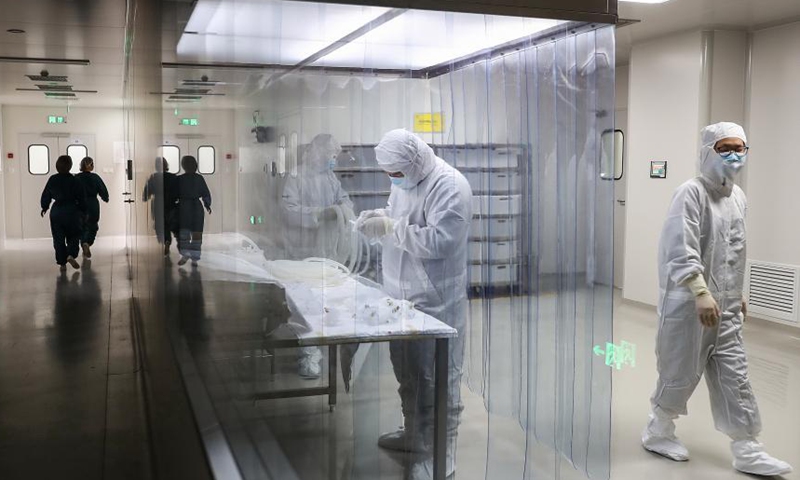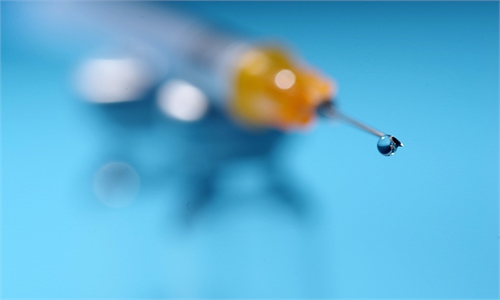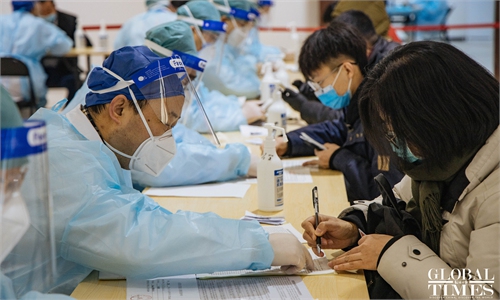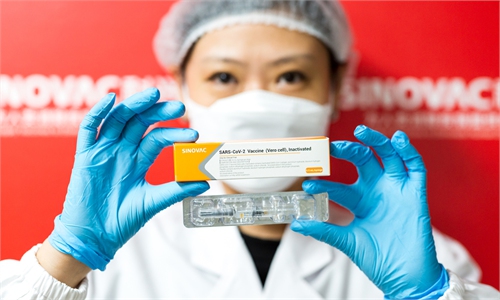
Staff members prepare silicone tubes at the COVID-19 vaccine workshop of Sinovac Life Sciences Co., Ltd. in Beijing, capital of China, Jan. 6, 2021.
Chinese inactivated vaccines are effective for all coronavirus mutants spread to China from overseas in recent outbreaks, according to lab tests conducted by Chinese scientists, Shao Yiming, a leading expert advising on China's vaccine research and development, told the Global Times in a recent exclusive interview, noting that China is prepared for wider mutations and is able to redesign an inactivated vaccine against the mutants in as quickly as two months.
Preliminary lab results show that antibodies produced by Chinese inactivated COVID-19 vaccines can neutralize the existing variants found in the UK and South Africa, though the efficacy is slightly weakened, Shao, an expert at the Chinese Center for Disease Control and Prevention, elaborated.
Chinese scientists are working with vaccine producers to study mutations, and lab studies are underway to understand the potential implications for Chinese vaccines.
"The current generation of vaccines alone is not enough to stop the virus completely, as virus mutation has been a long-standing challenge. A vaccine is normally effective against homologous viruses but less effective against non-homologous viruses by various degrees, according to data on the antibody level after injection. But it does not mean the vaccine is completely ineffective against the virus," Shao told the Global Times.
"In the case of the flu vaccine, we consider to design a new vaccine only when the antibody titer level drops by as high as eight times. But for the coronavirus vaccine, the threshold for a redesign has not yet been confirmed," he noted.
Chinese vaccine manufactures and scientists are now assessing the necessity to redesign vaccines against new mutants. Even in the worst case scenario, the inactivated vaccines could be redesigned and tweaked for a better fit in around two months, said Shao. "But other technological routes may not be as fast."
The manufacturers only need to replace the seed virus in the fermenter with the mutated one; the whole process does not require much adjustment, Shao said.
Compared with other types of vaccines, inactivated vaccines in China and the mRNA vaccines widely used in the West are the two that respond most quickly and effectively to mutants.
But the redesign of the inactivated vaccines may take one month longer compared to the mRNA vaccine which is developed by chemical synthesis. The inactivated one follows a biological process which takes time to breed the replaced cells, Shao noted.




